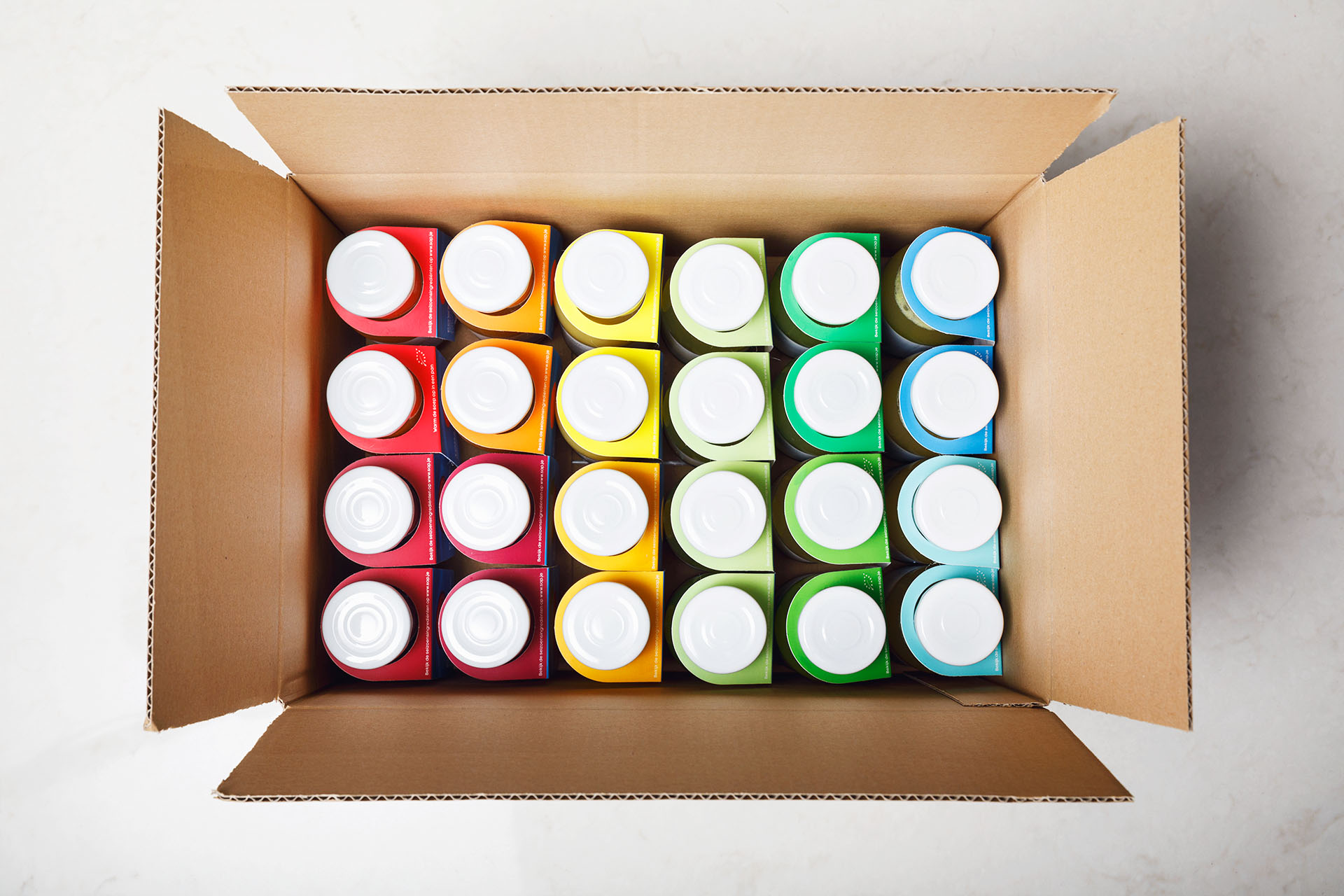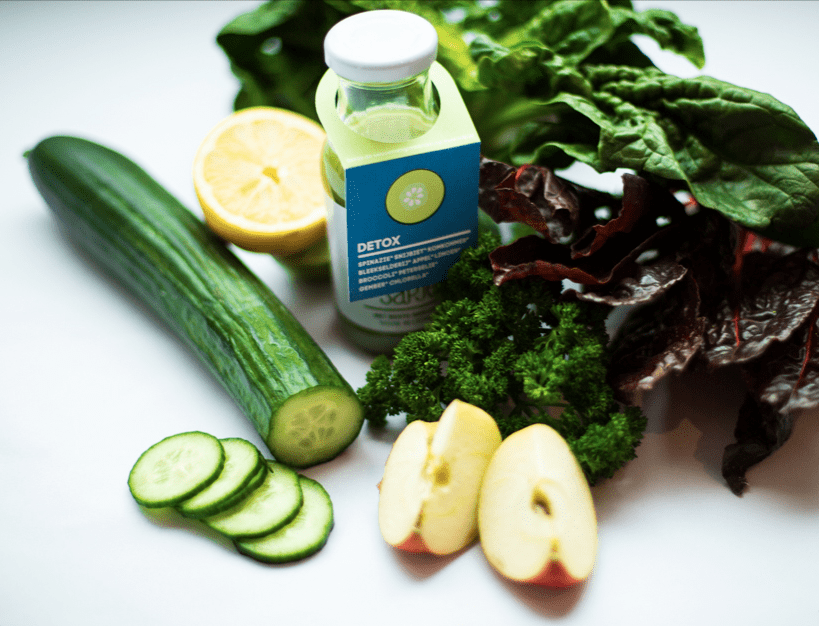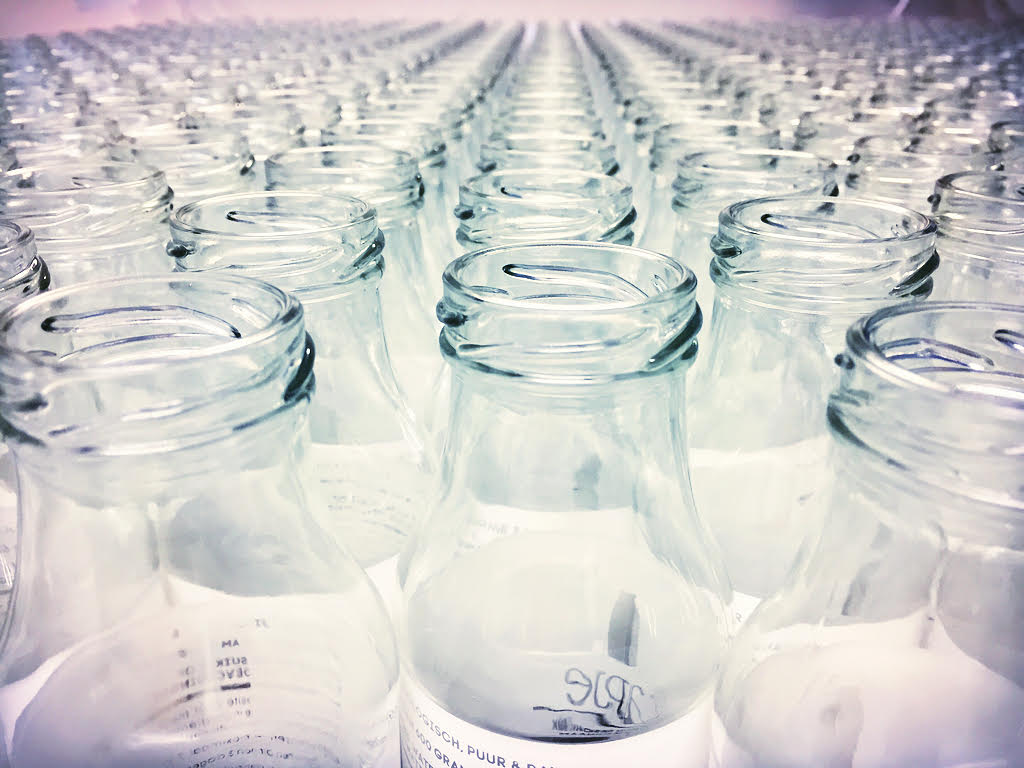What many people notice when they receive their first Sap.je juice, is that our vegetable juice is in a glass bottle. Vegetable juice in glass isn’t very common, but as far as we’re concerned, this will change soon! We believe that by bottling juice in glass bottles, you can avoid the many drawbacks of plastic bottles. Because we regularly get questions about the advantages of glass versus plastic, we decided to dedicate this blog to all the reasons why we choose glass. Among other things, we will discuss the advantages of vegetable juice in glass for your health and the environment. Read on to discover why we think that juice in glass bottles is the best!
WHY PUT VEGETABLE JUICE IN GLASS?
A question we regularly get at Sap.je, is why we deliver our juice and our Juice cleanse in glass bottles. The short answer is: Because this is better for the quality of our juice, the health of our customers and for the environment. We’ve done a lot of research to come to this conclusion. For example, we have read various studies about the advantages of glass versus plastic. We’ve also looked at companies that recycle glass, landfills and waste factories to understand the impact of glass on the environment. If you would like to know what our conclusions were, please read on. Below, we list the most important points for you.
GLASS VERSUS PLASTIC
Non-alcoholic beverages, such as soft drinks, fruit juices, smoothies and vegetable juices, are mainly sold in plastic bottles. Plastic is a light material, which has natural practical advantages when it comes to transport and storage. But for us, the disadvantages of plastic outweigh the advantages. Plastic is bad for the environment; the production is not sustainable and is polluting. In addition, plastic waste is not bio-degradable, making it difficult to recycle. Not to mention the fact that the chemicals in the plastic can mix with the juice. This is at the expense of the taste and health benefits of the vegetable juice. Glass is a heavier material and breaks more easily. However, the advantages are great: Glass is made of natural materials, can be recycled again and again and does not compromise the quality and nutritional value of our vegetable juice. To protect the environment even further, we at Sap.je have chosen to use 100 per cent recycled glass.
MORE ABOUT THE ENVIRONMENTAL DRAWBACKS OF PLASTIC BOTTLES
Plastic bottles are still widely used worldwide. According to recent figures, around 1 million plastic bottles are used per minute worldwide. In the Netherlands, 900 million plastic bottles are thrown away every year. These are not biodegradable. Recycling plastic is still difficult. Only 14 per cent of the world’s plastic waste is collected for recycling. But, only 2 per cent of this is actually recycled. What’s more, plastic can’t be recycled indefinitely. What is not recycled often ends up as mountains of waste or in the ocean (where it becomes part of the plastic soup that is ever-increasing there). Or it is incinerated, releasing a multitude of toxic substances into the atmosphere. The production of plastic is not sustainable, either. To make one plastic bottle, you need a quarter of a litre of oil, which has to be extracted from the Earth. Petroleum and other polluting toxic chemicals are used in the production of a plastic bottle. These are bad for your health.
HEALTH RISKS OF DRINKING FROM PLASTIC
As mentioned earlier, plastic is made from various chemicals. Many plastic bottles are so-called PET (polyethylene terephthalate) bottles. These contain substances that can be carcinogenic and hormone-disrupting, such as:
-Antimony
-DEHA
-Bisphenol A (BPA) and other plasticizers
-dioxin
-vinyl chloride
-styrene
These substances can start to mix with the liquid in a plastic bottle, allowing you to ingest them unnoticed. They can also negatively influence the taste of the contents of the bottle. Heating or repeated use of a PET bottle would promote the release of these substances, so be careful with plastic bottles near a heater or in the warm sunlight. Do you want to reuse your plastic bottle to save the environment? This can be harmful to your health. On top of that, plastic is sensitive to mould, especially at the screw cap. Drinking from plastic is not good for your health, either.
MORE ABOUT THE ADVANTAGES OF VEGETABLE JUICE IN GLASS
By now, we hope you have a better understanding of why Sap.je chooses to bottle vegetable juice in glass bottles. Many of our customers choose our juices because they are organic, raw and of good quality. This makes them perfect to support your health. We want to prevent you from ingesting harmful substances through the packaging. Besides, we depend on nature to grow our vegetables, fruits, herbs, spices and other ingredients. That’s why we do what we can to spare them as much as possible. Glass is made of sand, soda and limestone. These are all-natural raw materials. No chemical additives or fillers are needed to make the material suitable as packaging for juice. Therefore, you don’t have to worry about harmful substances. If you throw the bottles in the bottle bank, they are efficiently recycled, so no raw materials are lost. Glass can be recycled endlessly, without losing its quality. That makes it very sustainable. Therefore, at Sap.je, we only use recycled glass. This is not only better for your health and the environment, but is also pleasant to use. We love the feel, weight and clarity of glass.



